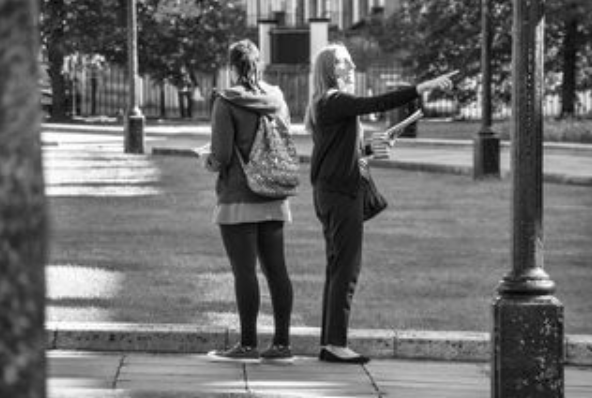In these uncertain times, a lot of us are feeling stuck. There’s a simple habit that can help you feel less stuck, taking a simple mindfulness pause. Without pausing to embrace the present moment—the one we are experiencing right now—we are not as self-aware, interpersonally-aware, or effective as we can be.
Source: Shauking/Pixabay
When we walk around without waking up to savor the moments of our lives, it’s as if we’ve switched off our internal cellular phone. There are lots of data coming in, but we don’t hear the messages. To get access to the information, we need to pause, notice the phone is off, and activate it. Without pausing to pay attention, we can be deaf and blind to life’s messages. We don’t notice what’s most meaningful – we don’t notice our own internal reality or the realities of the people in our lives and the world in which we live.
Research reveals that mindfulness and related skills that invite us to pause, take notice or savor the moment are learnable and support well-being in the mind, the brain, and the body (Goleman & Davidson, 2017; Siegel, 2011; Smith. J.L. & Hollinger-Smith, L., 2015). Even short daily mindful pauses can help us create positive shifts in our lives.
Taking a mindfulness pause is a habit that involves simply focusing your attention. Whether you pause just for a moment or for a few moments, that pause can help you redirect yourself to get out of auto-pilot. You can become aware of your internal experience without being blown away as frequently by the winds of life – and this can help you get unstuck from whatever you might be worrying about.
Mindfulness is really about paying attention right here, right now — so simple that all we need to do is pause and notice. Mindful leadership expert, Maria Gonzalez (2012) writes that mindfulness principles can be woven into every aspect of our personal and professional lives, helping us build focus and awareness, effectiveness, and decision making.
Taking a mindfulness pause is a simple step-by-step, moment-by-moment habit anyone can do. Rather than being an all-or-nothing experience, when we forget to pause and pay attention (which is an inevitable human behavior) it’s no big deal – we just remind ourselves to come back to noticing whatever the focus might be.
The ability to pay attention is a human capacity – all of us can do it (Kabat-Zinn, 2012). Using a mindfulness pause to get unstuck is not just for the old or the young, or the leader or the worker, or the believers or the non-believers – noticing the present moment is a learnable skill for anyone who is willing to practice it. Like learning to sit, walk, or throw a baseball, we can practice and build our muscles of attention.
21 Simple Ways to Take a Mindfulness Pause Right Now
Even if you have never tried this kind of awareness before, there are many simple ways to take a quick mindfulness pause. To begin to develop this habit, just pause briefly and focus your attention on where you are right now. Here are 21 ideas to help you practice this powerful way to transform your life.
1. Pause between bites of food and savor the taste
2. Really pay attention to your experience as you wash your face or brush your teeth
3. Turn off your personal electronic devices for an hour
4. Stretch and notice the sensations in your body
5. Listen carefully with no agenda to the person speaking to you
6. For just a few breaths, observe that you are breathing – the feeling of the in-breath and out-breath
7. Focus your attention on what you’re doing right here, right now
8. Look around and really notice your surroundings
9. Offer someone a few positive words from your heart
10. Read an inspiring poem
11. Sing a song in the shower – just for fun, no judgment
12. Observe the sunrise or sunset
13. Notice a bird singing
14. Stop for a moment and just sit or stand quietly
15. Appreciate someone in your life
16. Write a personal note of gratitude
17. Play with a child or a pet
18. Meditate
19. Notice the sounds in your environment without judgment
20. Clasp your hands together and notice the sensations
21. Listen to music
** This post is for educational purposes and should not substitute for psychotherapy with a qualified professional.
References
Goleman D. & Davidson, R.J. (2017). Altered traits: Science reveals how meditation changes your mind, brain, and body. New York, NY: Avery.
Gonzales, M. (2012). Mindful leadership: The 9 ways to self-awareness, transforming yourself, and inspiring others. Mississauga, Ontario: Jossey-Bass.
Kabat-Zinn, J. (2012). Mindfulness for beginners: Reclaiming the present moment – and your life. Boulder, CO: Sounds True.More
About the Author

Ilene Berns-Zare, PsyD, is a life and leadership coach. She writes about navigating personal and professional life with resilience, meaning, mindfulness, and well-being.Online:Personal Website, Twitter, Facebook, LinkedIn
